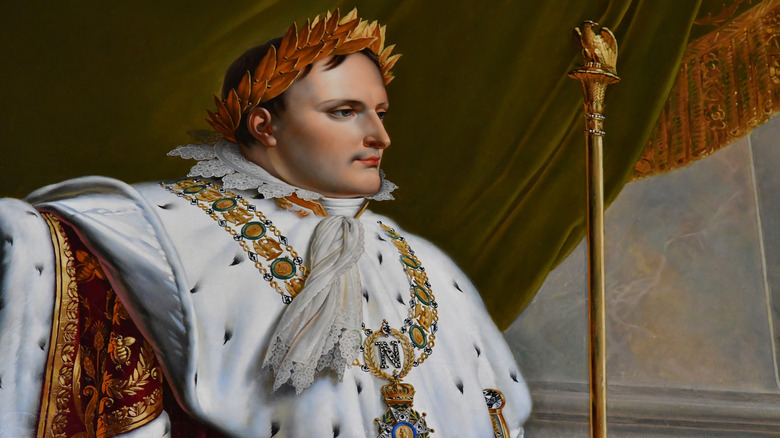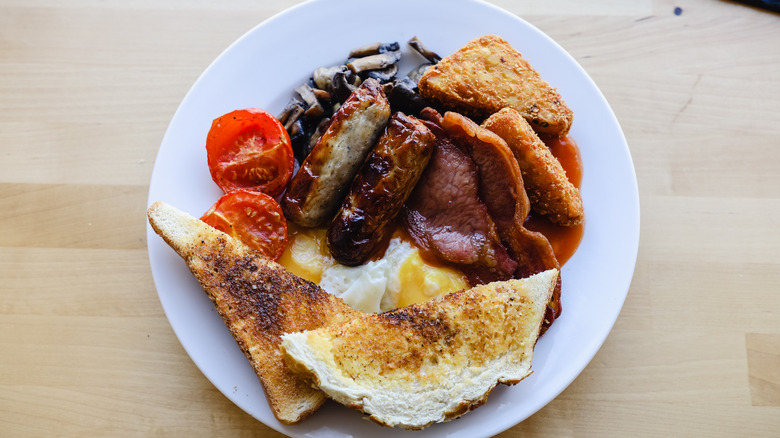Napoleon's Last Meal Was An Unusual French Delicacy
The last meals of famous and infamous people throughout history provide fascinating glimpses into their personalities, their preferences, and their circumstances at the end of their lives. Did they die in prison with their last meal restricted by what requests they were allowed to make? Did a tragically sudden death occur at the end of a fabulous day in their glamorous life following a sumptuous feast?
Few historical figures continue to garner as much consistent attention over two centuries after their demise as Napoleon Bonaparte. Borders were reformed and lines of succession altered in Europe because of the invasions and coup d'états of the French military leader, who crowned himself emperor of France in 1804. Today, we still flock to theaters to see blockbuster films about the controversial ruler. Naturally, Napoleon's last meal provides conversation fodder for even the most casual history buffs.
It was a breakfast, not unlike the full English breakfast: A dish consisting of multiple meat options with eggs, tomatoes, and toast. As one of France's key historical figures, it's fitting that this hearty breakfast represented the country's cuisine. The dish that proved to be his final one starred sauteed kidneys (a French delicacy) alongside liver and bacon chops with shirred eggs, garlic toast, and roasted tomatoes. It was a filling, rustic meal built on French cooking traditions, from the kidneys to the creamy eggs.
The kidneys were likely lamb or veal sauteed in sherry
It's hard to say if the kidneys were lamb, beef, pork, or veal, all of which are known dishes in different cultures, but lamb or veal is the most likely as they're fairly common French specialties, which the French call "rognons." Whoever cooked up Napoleon's last meal sauteed the kidneys in sherry, which would have imparted those rognons with some sweetness. Sherry is a fortified wine that hails from Spain and would have been brought along with French cooking traditions to Saint Helena, a British territory off the coast of southeastern African where Napoleon was in exile.
Even if you're not on board with wine-cooked kidneys, Napoleon's shirred eggs sound like a treat. Shirred eggs are a low-effort, fancy dish baked in flat dishes (shirrers) (or today in ramekins) with cream. The exiled emperor could have soaked those eggs up with his garlicky toast, and roasted tomatoes would have been the meal's sole representation of produce, a bright burst of acidity to balance all those meats and carbs.
Napoleon's last meal has its appealing elements, especially for fans of English breakfasts or for those who appreciate French cuisine. It's easy to assume he would have enjoyed it, except for one unfortunate reality, which is that the abdicated ruler's death at age 51 in 1821 came as a result of stomach cancer, a disease thought to have caused him great pain for several years.

